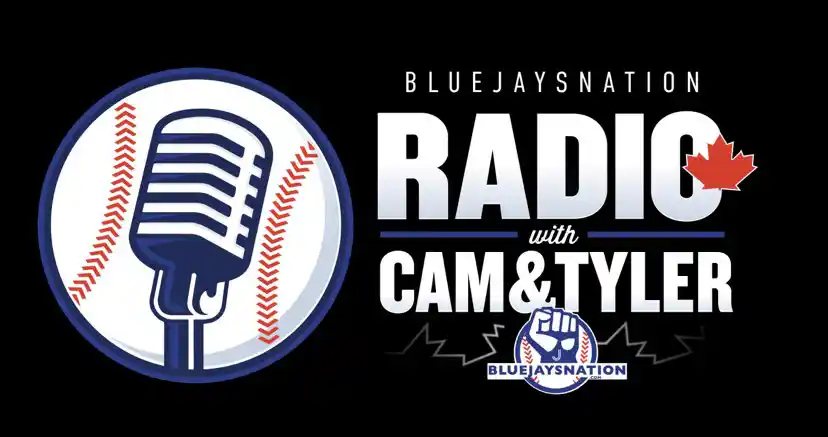Atkins Addresses Recent Blue Jays Firings

Steve Buffery of the Toronto Sun spoke to Ross Atkins over the weekend, getting the Blue Jays GM to go on record about the recent spate of dismissals, which have provoked a strong response among fans and media alike.
I have a lot of thoughts about this story — not so much about the firings themselves, but the way they’ve been covered and reacted to — but I’m going to stride calmly past that dead horse, at least for a moment, and focus on what Atkins actually said here. Because, to his credit, I think Buffery has allowed the GM fair opportunity to say what he wanted to say.
The most crucial bit, I thought, was the following paraphrase:
[Atkins] also said that because the media has changed so much over the years, so too must their communications department, adding that Romanin, Grosman, Mallabon and the department’s lone survivor, Jay Stenhouse, while all good people and workers, had much the same strengths and skills.
This, to me, is what had been missing all along in the way the club communicated these changes. Plain, relatable, clear English, for one. And, for two, a statement that, while maybe not entirely satisfying (presumably even less so to those who were let go and those close to them), seems… uh… reasonable enough?
But (and here we go…) another thing that’s been missing from so much of the conversation about this, of course, is any notion that the people running Jays might actually be capable of doing something reasonable. In Buffery’s very piece here, for example, he claims that “on the surface, the moves come across as petty, even mean-spirited, as with the case of visiting clubhouse manager Lenny Frejlich, one of the club’s few charter employees, who was also laid off.”
I think we all know what “mean-spirited” means. And… uh… is that really what we call it when a company that, after two years under new management, decides to restructure certain aspects of its operation and lets go of people deemed redundant or ill fitting with their vision for new modes of operation? I really don’t think it is! Is it shitty? Yes, of course it’s shitty. But “mean-spirited” means something specific. So does “callous,” as in the first line of the piece: “Ross Atkins hates the idea that the Blue Jays have come across as a heartless, soulless organization, callously laying off long-serving employees without reason or compassion.”
Where has that idea come from, though? I’m sure that there are plenty of fans who would have got there on their own, but not any with the remotest interest in being even the tiniest bit fair to the people running the club. Yet plenty more have been nudged in that direction by the coverage — the constant needling and fault-finding with this front office, the silly flag-waving over this particular issue, the way the notion of a “day one employee” losing his job was left dangling out there over the weekend on Bob Elliott’s Twitter feed, as though that alone ought to be reason enough to for anyone to keep their job. Or by the notion, which Buffery hits on, and which I’ve seen scoffed several times: how do these moves help the Blue Jays win more ballgames?
To ask that question, I think, shows, either unwittingly or not, a fundamental misunderstanding of what a modern sports franchise is and wants to be. How do any of the Jays’ in-office employees help the team win games? Apart from helping to drive interest, excitement, ticket sales, and — dare I say it — engagement, thus driving revenue that affords the club more money for better players and better player development infrastructure, they don’t! Because really what we’re talking about is not a baseball team, per se, but an entertainment company whose product is baseball. And if the higher ups think there are better, more modern, more efficient ways to go about doing those things to drive interest and monetizing their entertainment product, shouldn’t they?
Now, so we’re clear, I’ve been “restructured” out of a job myself, by a company that got out of doing long-form content for about as long as it took to find people to do it at half the salary, so I assure you I have sympathy for those who’ve lost their jobs here — and will have it again if/when new hires come in that make us wonder just how different their roles are than those who’ve just been let go. But mean spirited? It sucks, but isn’t it just business?
I’d ask something here like, “And how are we possibly still talking about this?” but I think we all know the answer.
Don’t get me wrong, I’m all for writers in the Toronto Sun suddenly having such troubles with fundamental capitalist notions like the right of employers to run their business the way they choose, but when all that is just a mask to hide behind as they lob grenades at a front office they’ve realized fans find easy to dislike, or they’re mad at for firing their friends, or who don’t give them the same access or perks as the good Canadian kids who ran it previously, or who were hand-picked by a club chairman who wronged their pals? That’s kinda where you lose me.
In fact, what I might consider mean-spirited is doing readers the grand disservice of needlessly trying to suck every last ounce of fun out of being a fan by constantly portraying people with the club in a negative light. Like Marcus Stroman, for example, who makes a cameo in Buffery’s piece. The writer quite cleverly, as a way to laud the dismissed Mal Romanin, uses a story that doesn’t paint Marcus in a very flattering light. The story is totally fair game. But while, in my book, the whole episode says a lot more about the people who continue to try to make Stroman’s “attitude” into some kind of crisis to be dealt with — and for good, upstanding fans to be concerned about, in the classic run-the-team’s-best-player-out-of-town-once-we-decide-we-don’t-like-him tradition of Toronto media — than it does Stroman, there are a whole lot of Sun readers who aren’t going to see it that way. And who maybe aren’t savvy enough to notice the agendas lurking behind every corner. And who will have their confidence in the team they want to love again shaken because of nothing more, that I can see, than pettiness.
And the thing is, if this is how the team and the front office is being handled in some corners of the media, and if the way this story has taken on a life of its own is indicative of the power of a small group to drive the conversation around the product and around the brand that the front office is determined to protect and grow, uh… I dunno… do you fucking blame them for maybe wanting to think differently about how they engage with the media?
Again, yes, it sucks to see people lose their jobs. It feels shitty to defend it, too! But by this point in his second coming, Paul Beeston (if you include his time as interim president) had fired between two and three times as many staff. Where was the outrage then? Where was the admonishment of saint Pat Gillick, who kept his home in Toronto long after he was running other teams, when the dastardly American, J.P. Ricciardi, was getting pilloried for not living in the city? Just as it’s fair to point out what Stroman said, or that that longtime employees were let go by the Jays, and to question the motivations and explanations given by the club, I think it’s fair to question this stuff, too. And the unfortunate thing is, if a whole lot of fans tried even just a little bit to do that, and to be fair to the people running the Blue Jays, we all — but especially they — would be much happier and calmer for it. I’m not asking for blind faith in a front office that has, I can admit, not delivered much so far, but there’s middle ground between there and frothing knee-jerk distrust. We might even be able to see that middle ground, too, if so many people weren’t so busy trying to make us look anywhere but.

Recent articles from Andrew Stoeten




